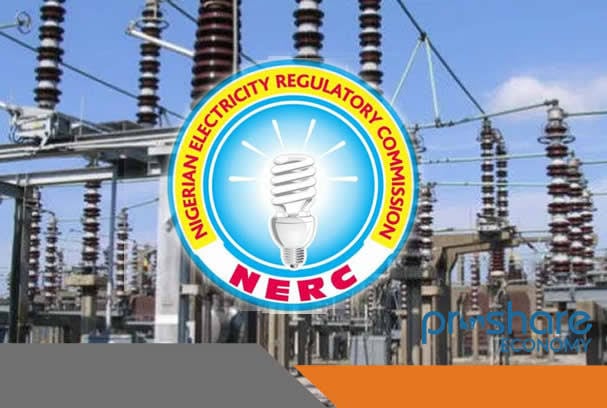Nigeria’s electricity metering programme recorded a marginal improvement in August 2025, as the national metering rate increased from 54.71 per cent in July to 55.01 per cent, according to the latest data from the Nigerian Electricity Regulatory Commission (NERC).
The data, contained in NERC’s Metering Factsheet for July and August 2025 and released via the regulator’s official X handle on Monday, showed that the number of metered customers rose to 6,579,818 in August from 6,508,611 in July. The total number of active electricity customers also increased slightly from 11,897,246 to 11,960,101 within the same period.
NERC said the improvement reflects the impact of ongoing reforms designed to promote billing transparency and strengthen revenue collection by power distribution companies (DisCos). The development comes as DisCos reported higher earnings this year. Earlier on Monday, The source reported that the companies collectively increased revenue collection by about 43 per cent in the first eight months of 2025, generating N1.5tn compared with N1.05tn during the same period in 2024.
According to the regulator, 70,888 new customers were metered in August, slightly below the 76,783 recorded in July. Ikeja Electric and Eko Electricity Distribution Company maintained the highest metering coverage nationwide at 84.83 per cent and 84.25 per cent, respectively, followed by Abuja Electricity Distribution Company with 73.92 per cent.
Aba Power also recorded notable progress, improving from 54.59 per cent in July to 60.39 per cent in August. Ibadan DisCo achieved a 50.54 per cent rate, while Port Harcourt DisCo remained relatively stable at 61.29 per cent.
However, electricity customers in the northern and mid-belt regions continued to experience low metering coverage. Jos DisCo, Yola DisCo, and Kaduna DisCo reported metering rates of 29.61 per cent, 28.65 per cent, and 33.60 per cent, respectively—well below the national average.
Overall, eight of the 12 distribution companies achieved metering rates above 50 per cent. The top performers were Ikeja (84.83 per cent), Eko (84.25 per cent), Abuja (73.92 per cent), Port Harcourt (61.29 per cent), Aba (60.39 per cent), Ibadan (50.54 per cent), Benin (50.78 per cent), and Enugu (46.79 per cent).
NERC noted that metering remains a key component of its regulatory drive to ensure accurate billing and enhance customer trust. It urged distribution companies to accelerate meter installations, especially in underserved regions, to close the nation’s estimated seven-million-meter gap.
To support this effort, the regulator recently approved the release of N28bn under the second phase of the Meter Acquisition Fund (MAF) scheme. The funds are aimed at providing free meters for all unmetered Band A customers under the Presidential Metering Initiative.
The directive, contained in NERC Order No. 2025/10—Order on the Operationalisation of Tranche B of the Meter Acquisition Fund—took effect on October 6, 2025. It was signed by the Vice Chairman of the Commission, Dr Musiliu Oseni, and the Commissioner for Legal, Licensing and Compliance, Mr Dafe Akpeneye.
Under the new order, electricity distribution companies are required to use the funds strictly for the procurement and installation of meters for unmetered Band A and Band B customers within their service territories.
In April 2025, the regulator sanctioned eight DisCos—Abuja, Ikeja, Eko, Enugu, Jos, Kaduna, Kano, and Yola—for violating approved monthly energy caps on estimated billing for unmetered customers. The affected firms were fined a total of N628m and directed to issue credit adjustments to all customers who were overbilled.
The penalties were part of NERC’s broader efforts to discourage estimated billing, protect consumers, and encourage compliance with metering regulations.
The commission said it expects the ongoing Meter Acquisition Fund and the Presidential Metering Initiative to significantly increase national metering coverage in the coming months. It added that full implementation would not only improve billing accuracy and revenue assurance but also enhance public confidence in Nigeria’s electricity supply industry.
NERC reiterated its commitment to monitoring compliance among distribution companies and to ensuring that metering expansion aligns with the government’s broader agenda for power sector reform, efficiency, and consumer protection.
